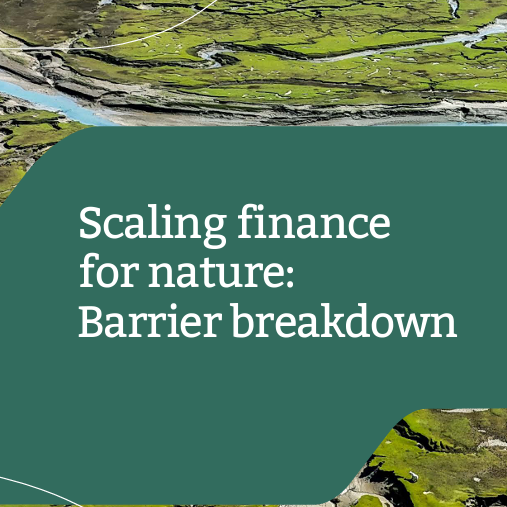The first report from the Restoring Nature campaign led by Centre for Sustainable Finance (CISL) highlights the critical role private finance must play in halting and reversing nature loss. Funded through the A-Track project, findings emphasize the need to close the US$700 billion annual biodiversity finance gap through redirecting capital that is having a negative impact and scaling that which is having a positive impact. Interviews with practitioners in the finance sector, including as part of a NATURANCE Innovation Lab held in March 2024, found that inaction can be traced to limited capacity and knowledge, drawn-out timelines and high perceived risk, nascent regulatory and political landscape, and confusion on measuring impact. However, the main theme that emerged from nearly every conversation was that nature finance is often narrowly perceived as conservation finance with low returns, making it unsuitable for private commercial capital at scale.
The report states that to scale private capital’s meaningful contribution to a nature-positive economy, it must focus on both halting and reversing nature loss. Nature-positive financing can mean either reducing harmful financial flows or increasing investments in conservation and restoration. An important takeaway is that private finance can unlock huge economic potential while contributing to a healthier planet. In the report, readers can find ideas for how private commercial capital can be part of the solution, including evidence of momentum through various financial mechanisms such as bonds and biodiversity credits, offering actionable insights for policymakers, bankers, insurers and investors.
Stay connected
Learn about the latest research and results from the project.
Subscribe to the NATURANCE Newsletter!

